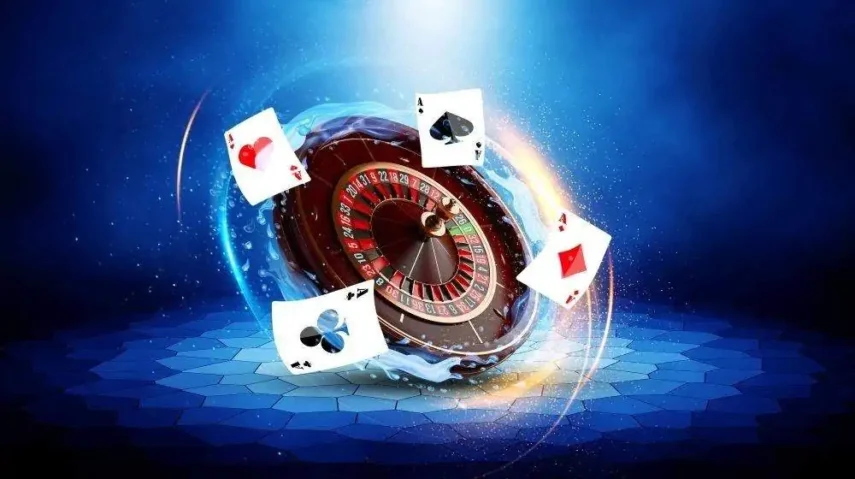Casinos have been around since the 17th century, when the first gambling hall opened up in Venice, sitting on the infamous Grand Canal. Originally describing a small country house or a social club, the word casino itself stems from Italian.
The freshly inaugurated Casino di Venezia sparked a gambling frenzy that took over the entire city, which boasted over 120 dedicated venues in less than a century and spread onto the world. By no means did Italy have a monopoly on gambling, though, since throwing the dice and engaging in games of chance have been recorded in all corners of the globe since ancient times.
The digital age revitalized this passion, so much so that the iGaming industry has long taken over its land-based competitors. According to the German data gathering platform Statista, the total revenue generated by the sector shall reach US$184.28 billion by 2032. So, what underpins this spectacular growth? And how exactly have casinos evolved with the times online? Let’s find out.
Online casinos: from humble beginnings to unstoppable force

While the first-ever casino emerged in mid-17th-century Italy, gambling in its modern form is most often associated with the US. And for good reason, as saloons uniting outcasts and cowboys around a game of poker are an integral part of the Old West mythos. Western movies like A Big Hand for the Little Lady or Trinity Is Still My Name reinforced that trope.
No sooner had gambling halls popped up all over the American Frontier and beyond, with Las Vegas and Atlantic City becoming the ultimate entertainment capitals of the world. Other entertainment hubs also claim that title, from Monte Carlo to Macau. Nicknamed the Las Vegas of the East, the latter even took over The Strip in revenue as early as 2007.
A digital turn with no going back
As the internet revolution shook the world, the phenomenon became even more global than ever. Big players in the industry didn’t miss the opportunity to tap into the immense potential of the internet. The mid-1990s saw the birth of the first batch of online casinos, with InterCasino paving the way for all subsequent platforms in 1996. Initially, online players could only access a fairly limited number of games, which mainly consisted of tabletop classics like roulette and blackjack.
Technological advances soon made it possible for software developers and casino operators to introduce more sophisticated features and push the immersion further. Likewise, the implementation of random number generators strongly established the fairest standards of gameplay, boosting trust and confidence among prospective players. And this global hype shows no sign of abating. As of 2024, gamers can pick one of over 4,700 casinos online – and counting.
How have online casinos kept up with the times?

The mobile switch
The mobile phone revolution has had as far-reaching repercussions as the digital transformation itself. Developers started venturing into this uncharted territory as soon as the late 2000s, optimizing their platforms for players to gamble on the go on their portable device of choice. Mobile apps quickly followed, allowing gamers to access a broad library of slots and card games, which ran as smoothly on the small screen as on desktop computers.
The introduction of intuitive interfaces notably expanded their player base by attracting non-gamers from all demographics. Much like casual games, mobile-friendly options do not require any preexisting knowledge of gameplay mechanics or any particular tech proficiency. Improved graphics and catchy sound effects only made their appeal more irresistible.
New marketing tactics
Social media are now paramount in boosting a business’s digital presence. Consequently, all casino operators have had to reevaluate their marketing strategy to enhance their online visibility. Utilizing traditional communication channels is no longer enough when platforms like Facebook, Instagram, or X allow companies to engage with billions of patrons at once.
Such global networks make it easy to promote ongoing and upcoming events, such as tournaments and gaming nights, which all but foster a sense of community and belonging that appeal to players on a personal level. Additionally, online casinos actively cooperate with content creators and influencers to generate excitement.
Technological advancements
While spinning the wheel or activating pay lines on a machine slot can seem a bit redundant at long last, online casinos have managed to reinvigorate such gambling classics through technology. For instance, live dealer casinos connect players with a human dealer operating in real-time, with whom they can interact as they see fit. Chatbots also allow them to banter with fellow players, adding a social element lacking in single-player experiences.
Pokies benefit from the same technological revival, with video slots displaying interactive virtual reels and launching video clips, focusing on sheer entertainment rather than a mere win-or-lose concept. Meanwhile, virtual reality (VR) is gaining traction in iGaming, taking realism up a notch.
Customer-centric approach
The spike in gambling online has given rise to more and more platforms, which all need to make a name for themselves to survive and thrive. Since customers can choose among thousands of competitors, many try to catch their attention with special rewards and personalized promotions. From handsome welcome packages to exclusive VIP treatments, online casinos put significant effort and resources into coddling their users.
Not all rewards are equally advantageous, however. That is why platforms like CasinoBonusCA make a point of vetting various casinos. Experts try out every casino to provide in-depth bonus analyses, breaking down each casino offer into benefits and drawbacks. They also ensure a casino passes strict security checks before putting their customer support to the test. Besides reading bonus descriptions and guidelines, users can run comparison tools and filters to make an even sounder decision.
Final Words

Gambling is a human activity that dates back to ancient Mesopotamia, where archaeological findings show that people engaged in games of strategy like the infamous Royal Game of Ur. This gaming passion spread over to China, where playing games of dice and betting herds of cattle soon became valid ways of entertaining oneself.
4,500 years later, gambling has gone digital worldwide. Casino operators enhanced their marketing strategies and leveraged new technologies to assert online dominance. And we haven’t seen the last of these innovations, as futuristic technologies like augmented reality are making waves in the iGaming sphere.
Related Posts:
- How Artificial Intelligence Developed the iGaming Industry
- Easy iGaming Bankroll Boosters: 6 Tips & Tricks for…
- The Digital Era’s Influence: Online Work,…
- How Land-based Casinos Are Considerably Better Than…
- The Evolution of Online Gambling: How Technology…
- The Rapid Evolution of Our Technology Interactions:…








